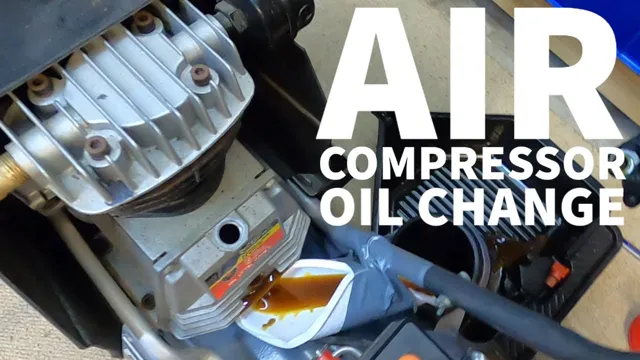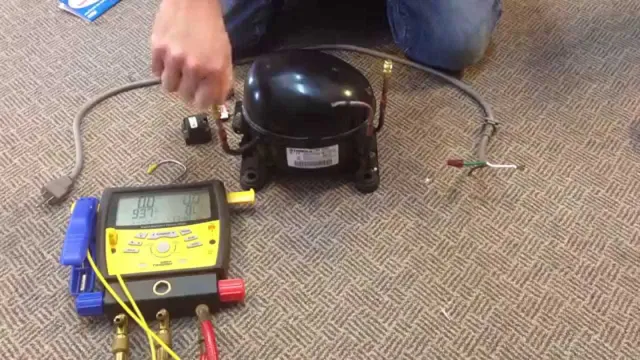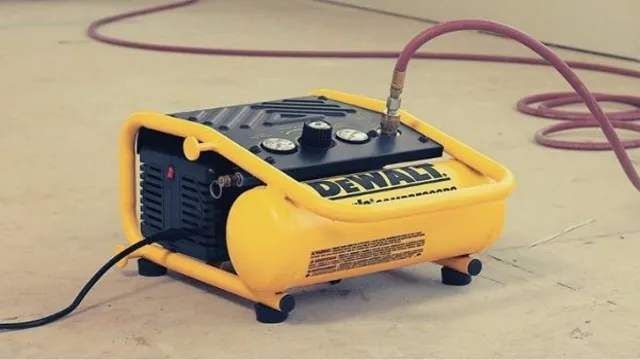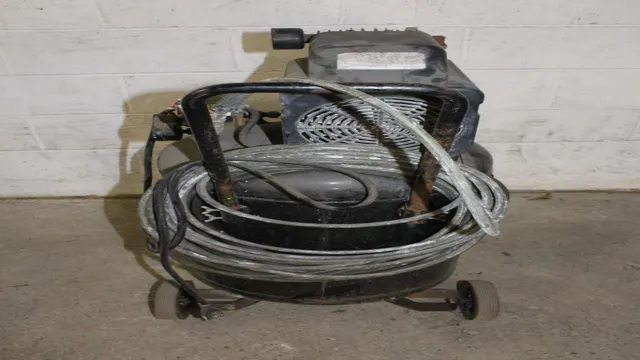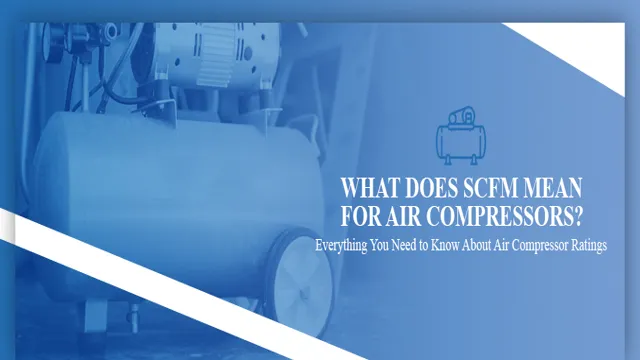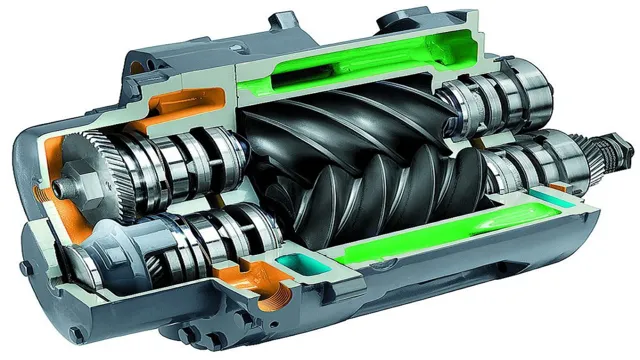Do I Need to Drain My Air Compressor? Tips for Proper Maintenance
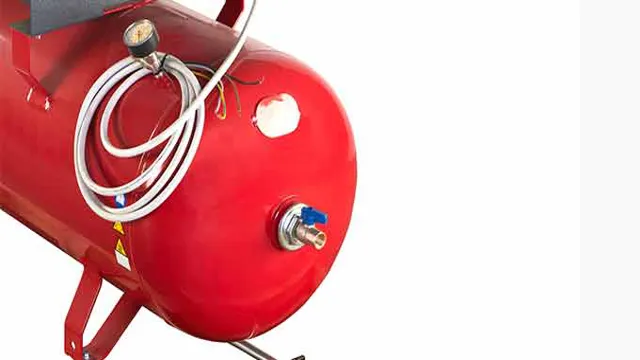
An air compressor is a piece of equipment that is designed to produce compressed air. This compressed air is then used to power pneumatic tools, inflate tires, and so on. One question that often comes up when it comes to air compressors is whether or not you need to drain them.
The short answer is yes, you do need to drain your air compressor. But why? Think of it like changing the oil in your car – if you don’t do it regularly, things can start to break down. The same is true for your air compressor.
Over time, the moisture that is produced when air is compressed can begin to build up, which can lead to corrosion and other problems. Regular draining of your air compressor can help prevent these issues, and keep your equipment running smoothly. But how exactly do you go about draining your air compressor? And how often should you do it? Read on to find out!
Introduction
If you own an air compressor, you might wonder whether you need to drain it or not. The short answer is yes, you should drain your air compressor regularly to prevent condensation and rust buildup. When air compresses, it creates moisture that can accumulate in the tank and cause corrosion over time.
If left unchecked, this can weaken the tank and lead to a potentially dangerous situation. Draining your compressor is a simple process that should be done after each use or at regular intervals depending on how often it’s used. By doing so, you’ll prolong the life of your compressor and ensure it operates safely and efficiently.
So don’t neglect this task and give your compressor the care it deserves.
Explanation of Air Compressors
Air compressors are essential tools used for various applications that require compressed air, such as inflating tires, powering pneumatic tools, and operating machinery. They function by taking in air from the environment and compressing it, thereby increasing its pressure and making it available for use in various applications. Air compressors come in various sizes and types, such as reciprocating compressors, rotary screw compressors, and centrifugal compressors, each with its advantages and disadvantages.
For example, reciprocating compressors are ideal for small-scale applications, while centrifugal compressors can handle large volumes of air and are commonly used in industrial settings. No matter the size or type of air compressor, regular maintenance is crucial to ensure its efficient and safe operation. It is important to check the compressor oil level, clean or replace air filters, and drain condensate regularly to prevent damage to the equipment and keep it running smoothly.
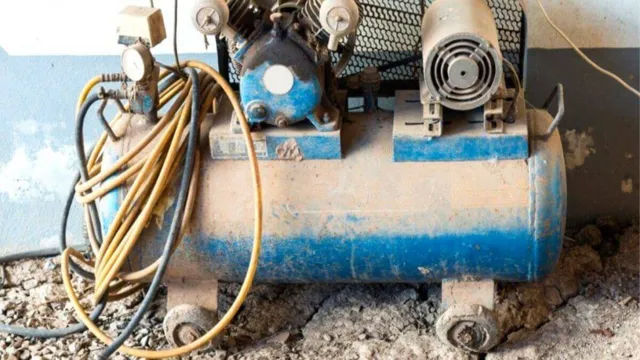
How Water Forms in Air Compressors
Air compressors are widely used in various industries like manufacturing, construction, automotive, and many others. One of the biggest problems that air compressors face is the formation of water. The process of compressing air leads to increased pressure and temperature, which in turn causes the moisture in the air to condense into water droplets.
This can cause serious problems like rust, corrosion, and damage to important machinery. To avoid this, air compressors are fitted with various kinds of drying systems that remove the moisture from the compressed air before it can cause any damage. These systems range from simple filters and separators to more complex refrigerated and desiccant drying systems.
Each method has its own advantages and disadvantages, and the choice of system depends on various factors like the size and type of compressor, the required flow rate, and the level of humidity in the surrounding environment.
Why You Need to Drain Your Air Compressor
An air compressor is a vital tool that is used for various reasons in industries and households. It helps in powering pneumatic tools, inflating tires, and much more. However, even though it may seem like a low-maintenance tool, it requires attention and care.
One of the most crucial aspects of maintaining an air compressor is regular draining. Draining helps to remove any excess moisture that may have gathered in the tank. Moisture can cause damage to the air compressor by rusting the inner parts and shortening the lifespan of the machine.
Therefore, it is important to regularly drain the air compressor to ensure that it operates at maximum efficiency and has a longer lifespan.
How to Drain Your Air Compressor
“Do I need to drain my air compressor?” is a common question among air compressor users, and the answer is a resounding yes. Draining your air compressor should be a routine maintenance task as it ensures the removal of any moisture and contaminants that can accumulate in the compressor tank. The accumulation of moisture over time can lead to rust and corrosion, which can damage your compressor’s internal parts and lead to costly repairs.
By draining your air compressor regularly, you will ensure that your compressor runs at peak efficiency and lasts longer. Depending on the frequency of use, you may need to drain your compressor daily or weekly. It is essential to follow the manufacturer’s guidelines on how often to drain the compressor to ensure optimal performance and longevity.
Keep in mind that neglecting to drain your compressor can result in poor air quality, reduced tool performance, and increased energy costs. Therefore, the simple act of draining your air compressor regularly can go a long way in protecting your investment and ensuring reliable operation.
Step-by-Step Guide on Draining Your Air Compressor
Draining your air compressor is an essential task in maintaining its efficiency and preventing damage. If your air compressor is frequently used, it is recommended to drain its tank daily to remove any accumulated moisture. Here’s a step-by-step guide on how to drain your air compressor: First, turn off the compressor and unplug it from its power source.
Release all the air pressure from the tank by opening the drain valve. Find the water drain valve located at the bottom of the tank, and open it to drain out any moisture. If your compressor doesn’t have a water drain valve, tilt the compressor to one side to allow the accumulated moisture to drain out.
Once you have drained all the moisture, close and seal the drain valve. Finally, turn on the compressor and let it run for a few minutes to remove any remaining moisture from the tank. By following these easy steps, you can ensure that your air compressor runs efficiently for years to come.
Tips on Maintaining Your Air Compressor
When it comes to maintaining your air compressor, draining it regularly is a crucial step to ensure its longevity and performance. Draining your compressor tank eliminates any moisture or debris that may have accumulated inside, preventing rust and corrosion that can damage the tank and the internal components of your compressor. To drain your air compressor, start by turning it off and unplugging it.
Then, open the drain valve located at the bottom of the tank, making sure to have a container or bucket to collect any water and debris that may come out. You can also use an air compressor water separator to filter out any moisture before it reaches your tools. After draining, close the valve and allow the tank to dry to prevent any remaining moisture from causing damage.
By regularly draining your air compressor, you can extend its lifespan and ensure its optimal performance.
Conclusion
In conclusion, the answer to whether or not you need to drain your air compressor is a resounding yes. Just like how you wouldn’t want to leave a bottle of water half-full and forgotten in your car, leaving water in your compressor tank can lead to rust, corrosion, and a whole host of other problems. So for the sake of your compressor’s health and longevity, make sure to drain it regularly.
Because as they say, an ounce of prevention is worth a pound of cure, and in this case, it’ll also save you a lot of money in repairs down the line. Trust us, your compressor will thank you (if it could talk, that is).”
Summary of Why Draining Your Air Compressor is Important
Draining your air compressor is essential for its longevity and performance. Over time, moisture accumulates in the tank and can cause rust and corrosion leading to leaks and breakdowns. Additionally, the moisture can mix with the compressed air and damage tools and equipment.
To prevent these issues, it’s recommended to drain your air compressor after every use or at least once a month. Here’s how to do it: first, turn off the compressor and unplug it. Then, open the drain valve located at the bottom of the tank and let the water and air escape until there is no more pressure.
Finally, close the valve, plug in the compressor, and turn it on to build up pressure again. By following this simple maintenance task, you can ensure the longevity and efficient performance of your air compressor.
Final Thoughts and Recommendations
When it comes to maintaining your air compressor, draining it regularly is a crucial step. Not only does it keep your compressor functioning properly, but it also prolongs its lifespan. To drain your air compressor, start by disconnecting all power sources and releasing any pressure within the tank.
Then, locate the drain valve (usually situated at the bottom of the tank) and attach a hose to it. Open the valve and let the water and debris drain out completely. Afterward, close the valve and reassemble the compressor.
It’s recommended that you drain your compressor after each use or at least once a month to prevent rust and corrosion from building up. Trust us; doing so will save you money and headache in the long run.
FAQs
When should I drain my air compressor?
It is recommended to drain your air compressor after every use to prevent moisture buildup.
How do I drain my air compressor?
First, turn off the compressor and disconnect it from any power source. Then locate the drain valve at the bottom of the tank and open it to release any accumulated moisture.
What happens if I don’t drain my air compressor?
If you don’t drain your air compressor, moisture can accumulate in the tank and cause rust, corrosion, and damage to the compressor components.
Can I drain my air compressor outside?
Yes, it is recommended to drain your air compressor outside or in a well-ventilated area to avoid inhaling any harmful fumes.
How often should I replace my air compressor drain valve?
It is recommended to inspect your drain valve periodically and replace it if there are any signs of wear and tear or if it’s not functioning properly.
What is an automatic drain valve for air compressors?
An automatic drain valve is a device that automatically opens and closes to release any accumulated moisture in the air compressor tank, making it easier to maintain optimal performance.
Can I use my air compressor without draining it?
No, it is not recommended to use your air compressor without draining it, as it can result in moisture buildup, reduced performance, and damage to the compressor components.

